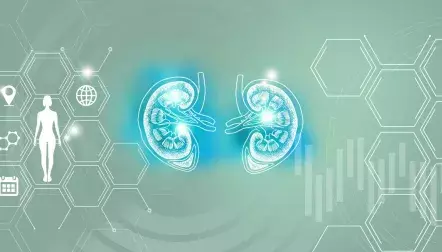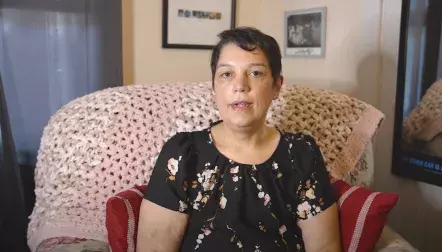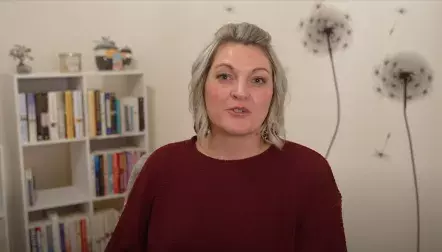
Complement 3 glomerulopathy (C3G)

- Medically reviewed by
- Shahzia Lakhani
- Last updated
- June 25, 2025
Jump to
- {wysiwyg_placeholder}
- {wysiwyg_placeholder}
- {wysiwyg_placeholder}
- {wysiwyg_placeholder}
- Navigating C3G: A patient’s guide to communicating with specialists
- {wysiwyg_placeholder}
- {wysiwyg_placeholder}
- {wysiwyg_placeholder}
- {wysiwyg_placeholder}
- {wysiwyg_placeholder}
- {wysiwyg_placeholder}
- {wysiwyg_placeholder}
- {wysiwyg_placeholder}
What is C3 glomerulopathy?
C3 glomerulopathy (glo-mer-u-lop-a-thy) is a disease that affects how well your kidneys work. It causes damage to structures in the kidneys called glomeruli (glo-mer-yuh-lahy). Glomeruli help the kidneys filter toxins out of your blood. Kidney damage from C3 glomerulopathy can be serious and lead to kidney failure. C3G is typically diagnosed in children and young adults, however it can be diagnosed at any age.
There are two types of C3 glomerulopathy: dense deposit disease (DDD) and C3 glomerulonephritis (C3GN). Only a kidney biopsy can differentiate between these two diseases. There are two different patterns of damage in the glomeruli, the tiny filters in your kidneys that clean your blood. The difference in the type of damage and inflammation in the kidney tissues looks different under a microscope. Both types cause similar kidney problems. While some studies suggest DDD patients have a more severe course, it is important to understand that both DDD and C3GN can lead to kidney failure.
What causes C3 glomerulopathy?
The "C3" in C3 glomerulopathy refers to a protein (called C3 complement protein) that is part of your body's complement system. The complement system is a collection of proteins in your blood that help (complement) your immune system. In C3 glomerulopathy, the complement system becomes overactive or doesn't work as it should. The overactive complement system leads to damage and inflammation of the glomeruli (which help the kidneys filter toxins out of your blood).
There are two reasons why the complement system is overactive in C3 glomerulopathy:
- Due to genetic changes in certain proteins: Some proteins in the complement system help control (regulate) and stop the system when needed, other proteins may accelerate (or speed up) the complement system. Genetic changes can occur in either the proteins that help regulate the system or proteins that accelerate (or speed up) the complement system, both can make a patient more likely to develop C3G.
- Due to autoantibodies: Autoantibodies are abnormal proteins that can also change the ability of proteins to control the complement system.
What are the signs and symptoms of C3 glomerulopathy?
The kinds of symptoms, and how bad they are, can be different for everyone. People with C3 glomerulopathy may not notice symptoms until the disease gets much worse.
Some signs and symptoms of C3 glomerulopathy are:
- High levels of protein in your urine (pee)
- Blood in your urine (you may not be able to see the blood as it may only be seen under a microscope)
- High blood pressure
- Urine that is dark or foamy
- Urinating less than usual
- Feeling weak and tired
- Swelling of hands, feet and ankles
- Worsening lab values (such as creatinine)
- Progressive kidney failure
C3 glomerulopathy can also cause symptoms that are not related to your kidneys. These include:
- Eye problems
- Unusual distribution of fatty tissue under the skin
Many people with C3G report that fatigue is the symptom that impacts them the most. Here are some ways to cope with this symptom:
- Plan ahead – you can plan activities for times when you are likely to have more energy, and plan to rest when you will have less energy.
- Spread tasks out over the week and do a little bit each day.
- Sit down to do chores whenever you can such as folding laundry, chopping vegetables or other stationary tasks that are easier to do while sitting in one place.
- Ask family and friends for help with your everyday activities, such as housekeeping, shopping, and cooking.
- Talk with your employer to find ways to save energy during work.
How can doctors tell if I have C3 glomerulopathy?
If doctors find high levels of protein in your urine after a urine test, they may suspect a kidney-related disease. Since the symptoms of C3 glomerulopathy are similar to symptoms of other kidney-related diseases, the only way for doctors to know if you have C3 glomerulopathy is with a kidney biopsy. A kidney biopsy is a procedure where doctors take a tiny piece of your kidney tissue to look at it under a microscope.
With a kidney biopsy, doctors will also be able to tell if you have C3G, or another kidney disease.
Not all doctors may be as knowledgeable about C3G as others. If you don't feel comfortable with your doctor's knowledge about C3G, you can ask for a referral to a specialist or reach out to other doctors.

Navigating C3G: A patient’s guide to communicating with specialists
Living with a rare disease like C3G can be overwhelming. This guide is designed to help you speak up, ask questions and feel more confident when working with different specialists. Learn how to prepare for appointments, share important information, and make sure everyone on your care team is working together.
Request our C3G guide
Request our C3G Talk To Your Doctor Guide and sign up for our email series for more resources. You can take this guide with you to your next medical appointment.
Our guide is also available in Mandarin. Click here to download our C3G guide in simplified Chinese
Request your guide
How do doctors treat C3 glomerulopathy?
There is currently no cure for C3 glomerulopathy. The goal of treatment is to slow the damage to your kidneys and delay or prevent kidney failure. Your doctor will work with you to make a treatment plan.
Doctors may treat C3 glomerulopathy with medicines that:
- Help control your blood pressure
- Suppress (weaken or slow) the immune system
Doctors may also recommend that you:
- Regularly follow up with a nephrologist (kidney doctor) and get kidney function tests checked frequently. Learn more about kidney function tests that your doctor may order such as blood tests, urine tests, kidney ultrasound and kidney biopsy.
- Make changes to what you eat
- Get evaluated for dialysis or a kidney transplant depending on the level of your kidney function
For some patients, your kidneys may get worse over time and lead to kidney failure. If your kidneys fail, you'll need to start dialysis, a treatment to remove waste and fluid from your blood, or receive a kidney transplant.
Available Treatments
There is one medicine approved by the Food and Drug Administration (FDA) to treat C3G, and several more treatments are in development. The current medicine available helps to lower the level of protein in urine (proteinuria) and can help slow the progression of kidney disease. Talk to your doctor and healthcare team to learn more about options that are best for you.
What can I expect while living with C3G?
Just diagnosed
You may have been struggling with chronic kidney disease (CKD) for a long time before your C3G diagnosis, or you may have discovered your kidney damage and C3G at the same time.
In both cases, this diagnosis can be overwhelming. C3G is a chronic disease, meaning you will have it for the rest of your life. Over time, the disease can get worse and can lead to kidney failure.
Talk to your health care team early on and often about treatment options, clinical trials, and any new symptoms to help prevent future damage.
C3G Progression
C3G is both a chronic and progressive condition, which means that over time protein continues to deposit in the filters of your kidneys (glomeruli) causing kidney damage and eventually leading to kidney failure. How quickly this damage occurs and builds up varies from person to person. C3G causes kidney failure in about half of all patients within 10 years of diagnosis.
Living with a chronic disease like C3G can be difficult. It can affect your mental health as well as your physical health. Talk to your doctor about resources that are available to you to support your mental health.
As C3G progresses, your kidney disease may get worse. Talk to your doctor about how to monitor your kidney disease and how often you should have testing done. Kidney disease often has no symptoms until late stages, so testing is a key part of managing your disease. There are two key tests to monitor kidney disease, the eGFR and the uACR.
eGFR (estimated glomerular filtration rate) is a blood test that shows how well your kidneys are working by measuring the waste and toxins in your blood. It typically uses how much creatinine is in your blood to calculate it. Creatinine is a waste product from your muscles that should be filtered out by your kidneys; if your kidneys are damaged, it can build up in your blood.
uACR (albumin-to-creatinine ratio) is a urine test that measures how much albumin (protein) and creatinine (waste product from muscles) is present in your urine. The amount of protein in your urine can indicate the amount of damage. A higher uACR means there is more damage to your kidneys. Your uACR can also indicate your risk for progressing to kidney failure.
C3G can recur after a kidney transplant, some estimates are as high as 80% of cases. Risk factors and prevention strategies for reoccurrence are not well understood. If you are post-transplant, talk to your doctor about how you can monitor your transplanted kidney for any signs of disease.
Visit our pages on the stages of CKD to learn more about managing the disease at every stage.
Know Your Kidney Numbers
Identify and reach your kidney health goals, using our interactive Know Your Numbers tool. Learn more about your kidney health now and how you can slow damage to your kidneys and live a healthy life with C3G.
Can children have C3G?
C3 glomerulopathy does occur in children, most often as dense deposit disease (DDD). Symptoms of C3G in children will look similar to the symptoms that occur in adults. C3G is a chronic disease, meaning children diagnosed will need care throughout their lives.
What is the outlook for children with C3G?
Similar to adult cases, the amount of kidney damage and how quickly the damage occurs is different for each child with C3G. If your child has a lot of kidney damage at diagnosis they are more likely to progress to end stage renal disease. Ask your doctor about specific concerns that you or your child might have about their health and C3G.
How can my child and I cope with C3G?
Having a child with a chronic disease like C3G can affect the whole family. It's important to:
- Explain to your child and other family members what is going on
- Tell your child how C3G may affect their day-to-day life
- Be your child's advocate
- Provide comfort and support for your child
- Seek out a pediatric nephrologist (kidney doctor)
You and your family may benefit from the support of mental health professionals, such as a therapist. They can help you navigate the diagnosis of C3G and all that it may entail. Talk to your healthcare team about seeing a mental health professional.
What can I expect as my child transitions to adult care?
As a parent or caregiver, you are probably used to being the "driver" of your child's care. You might make appointments, provide transportation, help with their medicines and many other areas of care. Many people in this position struggle when their child reaches adulthood and transition to adult care. It's important to be supportive and active in this transition so your child continues to have the greatest chances of achieving independence with managing their own health.
Here are some challenges you may face and strategies to cope with them:
- Feeling a loss of control: this is normal, but channeling this feeling into working with your child to build their independence can help ease the feeling. This can look like:
- Involve your child early – educate them about their disease, their medicines, and their symptoms.
- Track their appointments on a calendar they can easily see and as they get older, encourage them to make their own appointments.
- Include them in medicine management by setting up a pill organizer, taking them to the pharmacy, and using full medicine names.
- Ask them if they have any questions for the doctor prior to appointments and write them down.
- Issues with insurance: you or your family may be a source of insurance for your child. As they switch doctors or get their own insurance plan complications can arise. Be prepared for this by reviewing details of your current plan in advance of the transition to adult care and being a resource for your child's questions.
What should I know about transitioning from treatment as a child to treatment as an adult?
When you have a chronic disease such as C3G, it will be with you for life. If you were diagnosed as a child, you will transition from pediatric (child) health care doctors to adult doctors. For some, this happens right after high school, for others it may not happen until your twenties. This change, regardless of when it happens, can present many health and social challenges.
Guiding C3G patients through the transition of care
If you were diagnosed with C3G as a child, you may be preparing to move from pediatric to adult kidney care. This guide helps young adults and families plan a smooth and informed transition.
What can I expect during this transition?
As a young person with C3G, you have likely been seeing the same doctors for a long time. It can be hard to change to new doctors. It's important to remember that C3G is a life-long disease and learning how to manage your care is critical to leading a healthy life.
Some challenges you might face are:
Medical Challenges
- Maintaining or changing health insurance: talk with your insurance provider early on to understand what might change as you switch doctors, and work with your parents or caregivers to remain either in network or with a doctor that your new insurance will accept.
- Changes to insurance can also result in gaps between appointments and medicine refills: work with your health care team to make a backup plan in case you experience a gap in care.
- If you live in the United States and receive dialysis for end stage renal disease you may qualify for AKF's Health Insurance Premium Program (HIPP), which provides financial assistance for people who cannot afford their monthly insurance premiums.
- Progression of kidney disease: C3G can cause your kidneys to get worse overtime, stick to your medicine routines, track your symptoms, and communicate with all your doctors about any changes you notice.
- It can be easy to go a while between appointments during a transition period. However, symptoms of kidney disease are not often felt, so it's important to keep all appointments to prevent further damage.
Social Challenges
- Anxiety when switching doctors: you may have been with the same doctors and health care team for a while, and it's normal to feel sad when thinking about having a new team. Here are some steps you can take to encourage communication between your old doctors and to build relationships with your new doctors:
- Ask your current health care team for a referral to doctors that work with adults
- Check-in with both your adult and pediatric teams to make sure information is being shared
- C3G can disrupt activities like school or work and the transition to a new doctor might be happening when you are graduating high school or college. Your experiences might look different than your peers and that can be isolating. Talk to your support system about how you're feeling.
- Don't be afraid to express how you feel to your support system and ask questions about resources available to you. Open communication can help your support system be there for you in the ways that you need.
Do I need to make changes to what I eat if I have C3 glomerulopathy?
What you eat and drink is very important when you have kidney disease. There are many things to consider depending on your stage of kidney disease, such as:
- How and what you eat
- Different nutrients
- The amount of fluid you consume
A dietitian (an expert on food and nutrition) can help you make a kidney-friendly eating plan that works for you. You can find more information about eating healthy with kidney disease at Kidney Kitchen®.
Your doctor may also recommend that you:
- Make changes in what you eat to lower the amount of protein, fat, sodium and cholesterol you take in
- Take in more or less fluids through drinks and some foods
- Lose weight
View stories about people affected by C3G

For Anne, self-advocacy was an important part of her diagnosis.

For Cheri, raising awareness and educating the kidney community is an important part of living with C3G.

For Shannon, being a parent and caregiver of a child with C3G means doing research, finding a community, and never giving up.
How does C3 glomerulopathy affect mental health?
Living with C3 glomerulopathy can affect your mental and emotional health. Depression, anxiety and other mental health issues are common in people with kidney disease. If your kidney damage gets worse, you may feel more stress. For example, if you are on dialysis, stressors may include:
- Cost of dialysis
- Time needed for dialysis
- Feeling like a burden to others
- Changes in your job
- Limits on what you can eat
- Fear of pain
Find healthy ways to cope
It is normal to have stress, anxiety and depression when having a health problem. If you notice changes to your mental health, these activities may help you feel better:
- Be active for at least 30 minutes most days of the week. Exercise can lower feelings of depression and anxiety and improve the way you think, learn and remember things.
- Get enough sleep. Aim for 7-8 hours a night and try to go to sleep and wake up at the same time every day. Poor sleep affects mood, energy, attention span and your ability to think clearly.
- Tap into your faith. For some, connecting with religion and spirituality may serve as a valuable way to cope with mental health issues. Your faith community can provide a group of people that you can rely on when you are feeling down.
- Explore your creative side. Pick up an old hobby or try something new such as painting, crafting or sewing. When engaged in something you enjoy, it can lower stress and release feel-good chemicals in your brain.
Talk to a professional
If you want to talk to a professional, ask a member of your treatment team for a referral to a mental health therapist, counselor or social worker.
These professionals are trained to help you:
- Understand and process your emotions
- Improve your coping skills
- Maintain healthy relationships with loved ones
- Navigate everyday life with chronic disease
- Advocate for your needs
Many health insurance providers cover mental health services. Call your health insurance provider to find out what your health insurance plan includes and get a list of in-network mental health professionals in your area.
Find a support group
Having a chronic disease like C3 glomerulopathy can feel isolating. But you are not alone. One of the best ways to cope with a major life change is to connect with people who are going through a similar experience.
Benefits of joining a support group include:
- Being able to talk openly and honestly with people who understand what you are going through
- Learning tips for managing C3 glomerulopathy from people who have been living with it for longer than you
- Learning more about C3 glomerulopathy and opportunities for patients
- Finding new ways to cope
- Feeling empowered and supported by your new community
- Making new friends
You can find a C3G support group through Facebook. Visit the C3G Warriors page.
Learn more about mental health and kidney disease and where to go for support.
How to care for someone who has been diagnosed with C3 glomerulopathy?
Being a caregiver for someone with C3G is a big job as they will need additional care with daily living along with their medical appointments. This is an important role and can often mean you help to assist in day-to-day activities such as assisting with household chores like making healthy meals to preparing for and attending medical appointments with them along with helping to coordinate care and advocating on their behalf.
Checking in on their emotional health is also important along with keeping an eye on yourself. Many caregivers can experience burnout, but it's important to take care of yourself too. If you are experiencing burnout, seek support from other caregivers and fit in time for breaks to rest in your schedule. Learn more about tips for caregivers.
A caregiver's guide to supporting C3G patients
This caregiver guide will help you navigate medical needs, emotional support and daily care while prioritizing your own well-being. Learn how to manage appointments, lifestyle changes, and long-term planning with confidence. Get the tools and knowledge to provide the best possible care for your loved one.
Where can I learn more about C3 glomerulopathy research?
If you or a loved one has been diagnosed with C3G, learning more about research may bring hope.
Education content supported by Novartis


